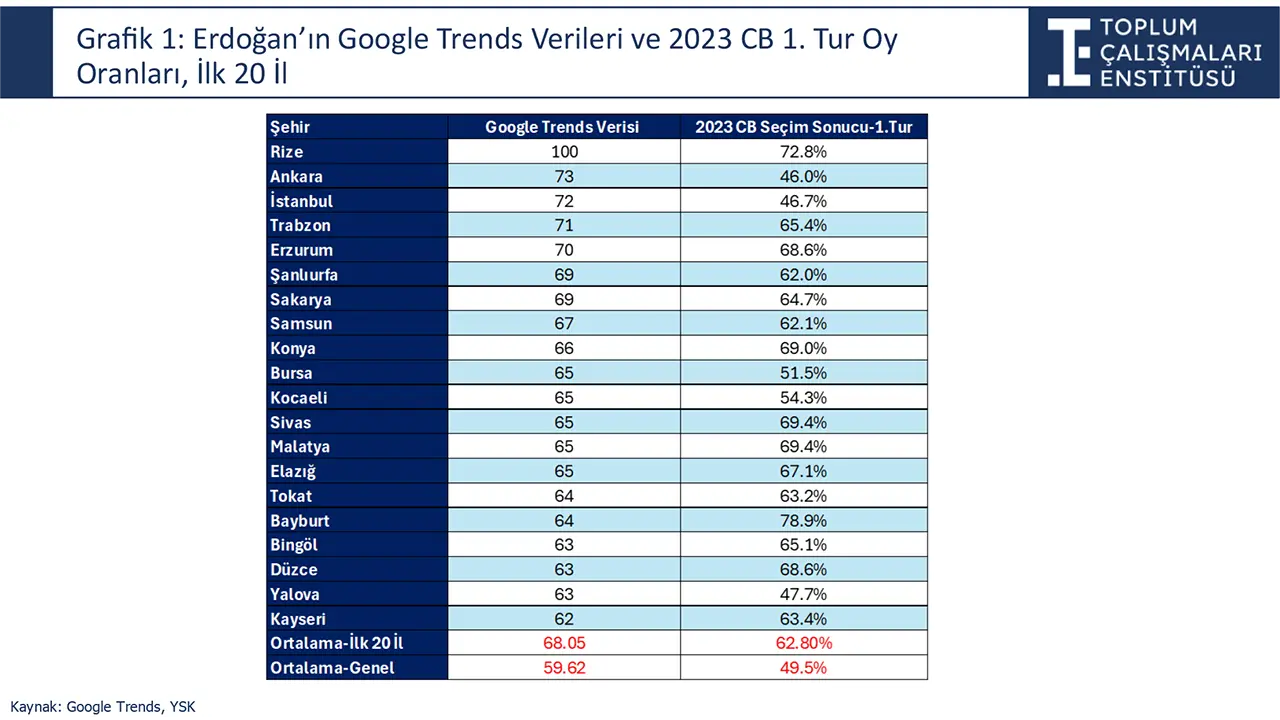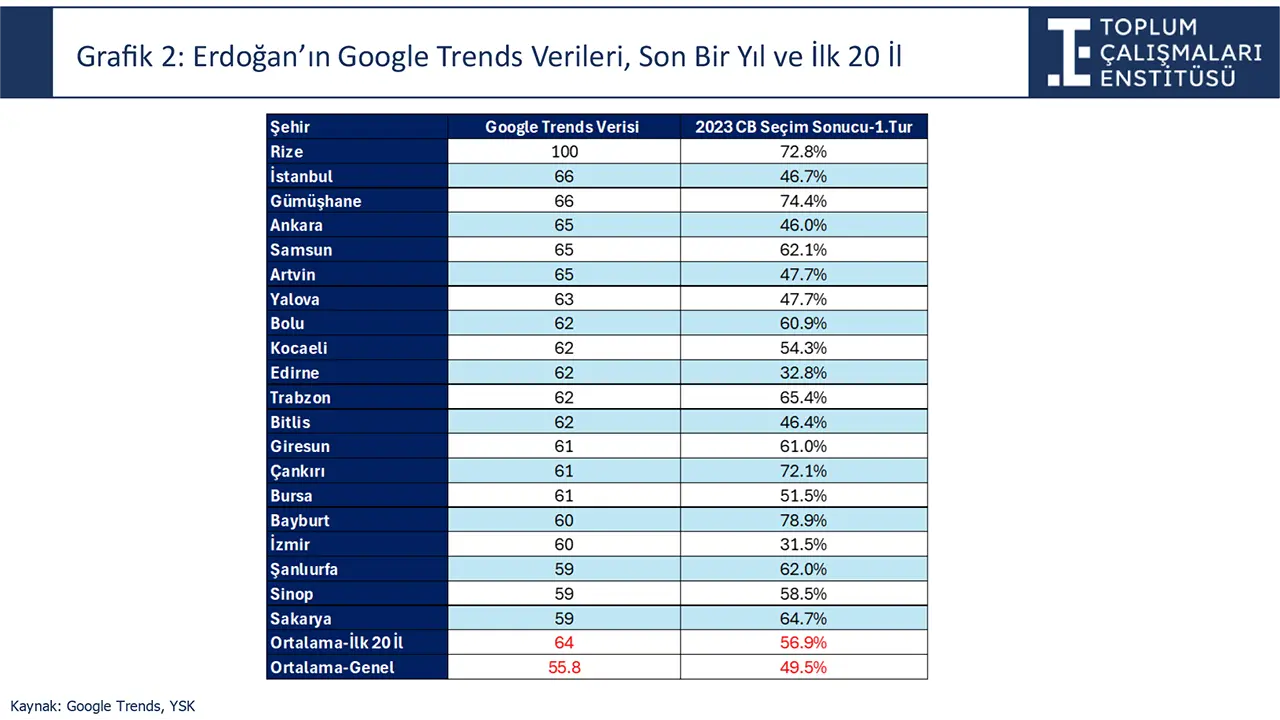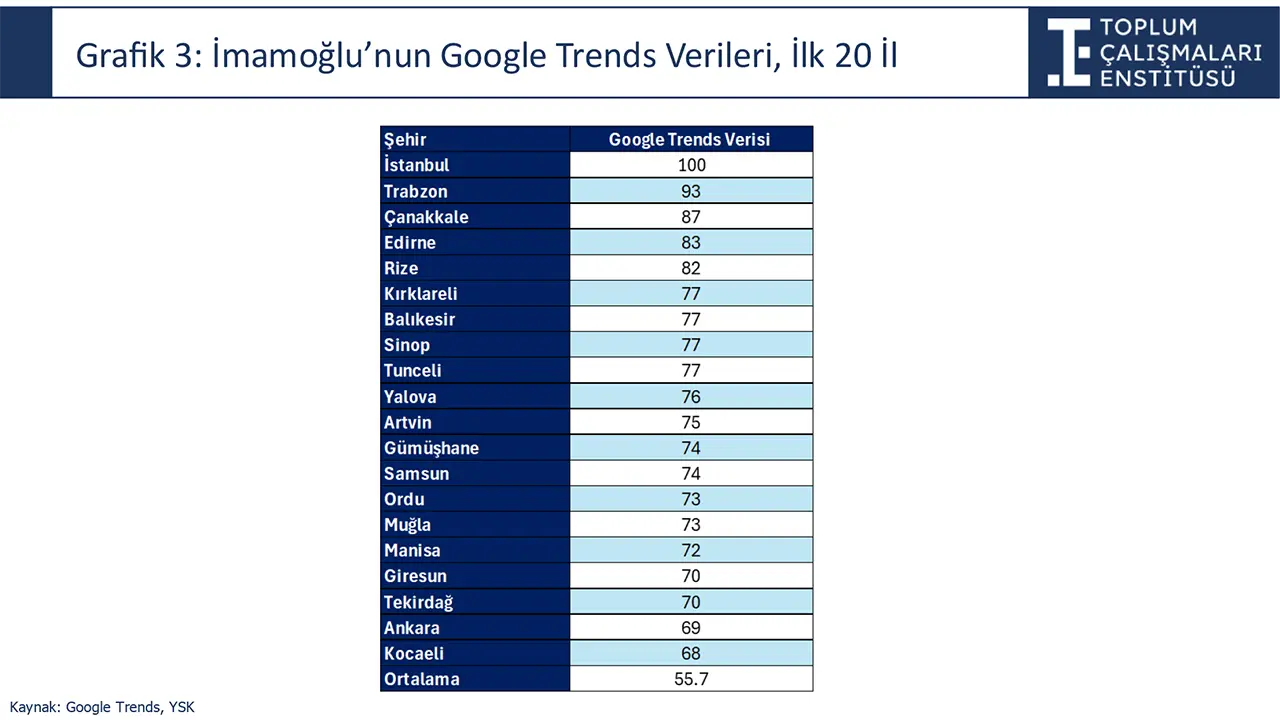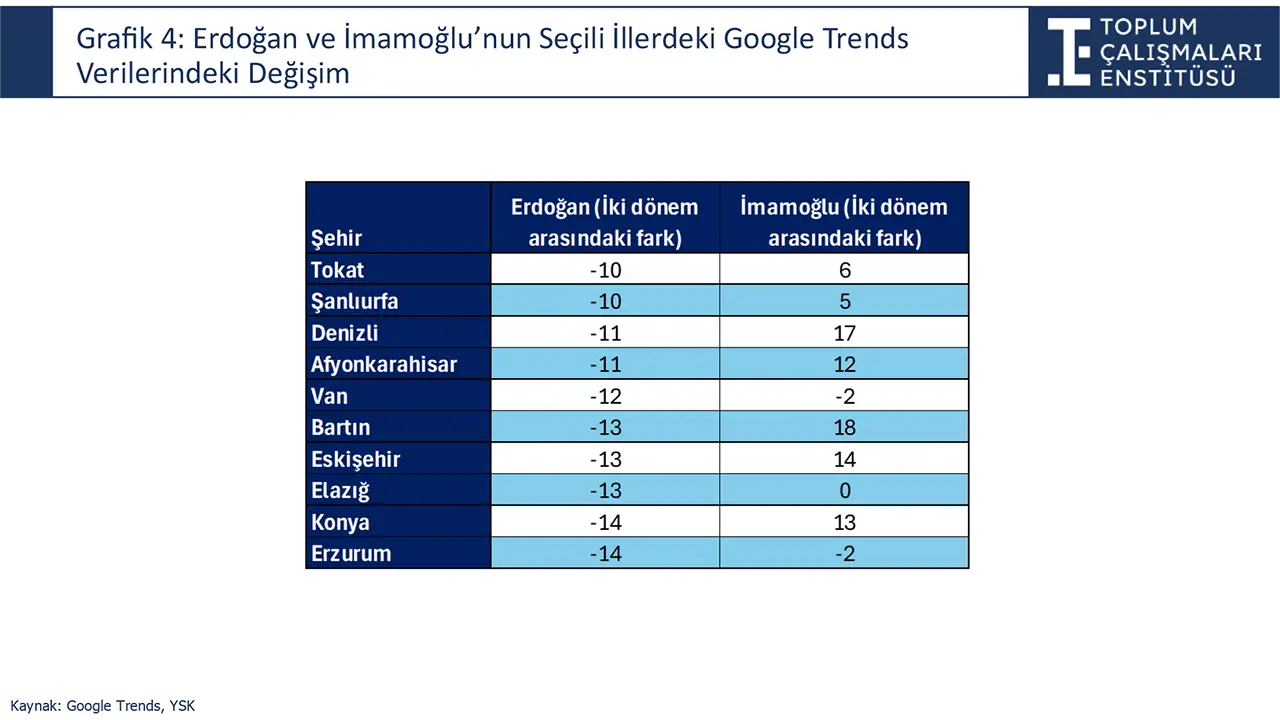In light of recent political and economic developments, numerous survey studies have come to the fore in the public sphere. These studies indicate that, since the 2023 elections, there have been shifts in party preferences across Turkish society. However, such surveys often lack sufficiently large samples to analyze regional differences or trends in more specific domains.
By contrast, as someone who has conducted and coordinated field surveys on various topics across different regions of Türkiye, I still maintain contact with some respondents from diverse professional groups—such as shopkeepers and farmers—as well as from different geographical areas. In particular, recent conversations with these individuals have provided me with important insights. These discussions stand out in that even among AK Party supporters in regions such as Konya–Karaman, Rize–Trabzon, and Kayseri–Yozgat—areas where loyalty to the party is largely rooted in ideological identity—dissatisfaction with the current period is now being openly voiced. At the same time, there is also a considerable number of people who view İmamoğlu’s imprisonment as unjust.
While reflecting on how I might analyze these recent conversations in a more systematic way, a methodological suggestion was raised during the Institute’s Board of Directors meeting: making use of Google Trends data.
Google Trends is a tool that measures the relative intensity of searches for a given word or name across time and geography. The data are not presented as absolute search volumes, but rather as normalized scores ranging from 0 to 100. For instance, a value of “100” for a leader’s name indicates the highest level of search interest within the selected time and location range. In this way, it becomes possible to observe which topics, leaders, or parties attract more attention from users on the internet.
At this point, there is an important methodological detail: although the absolute number of searches in a highly populated city like Istanbul differs from that in a smaller city such as Rize, Google Trends normalizes each region according to its own total search volume. In other words, the scores reflect not the raw numbers, but the share of a given keyword within the overall searches in that region. This adjustment eliminates imbalances that might arise from population size differences and enables meaningful comparisons between provinces.
So, can Google Trends data be used to understand political developments in Türkiye? To test this, I examined the relationship between Erdoğan’s provincial vote shares and the provincial Google Trends data. In order to eliminate the effect of the elections themselves on search results, I included in the analysis the period from one month after the 2018 elections (24 July 2018) up to one month before the first round of the 2023 elections (14 April 2023).
According to the results of the analysis, the correlation coefficient between Erdoğan’s Google Trends scores and his vote shares is 0.42. While not very strong, this indicates a moderate positive relationship. In other words, in provinces where Erdoğan attracted greater relative interest within total searches, his vote share also tended to be comparatively higher. Moreover, Graph 1 illustrates the top 20 provinces in terms of Google Trends scores alongside Erdoğan’s vote shares in the 2023 elections.

The first point that stands out in Graph 1 is that while Erdoğan’s national average Google Trends score is 59.62, the average for the top 20 provinces rises to 68.05. Similarly, whereas Erdoğan received 49.5% of the vote nationwide in the first round of the 2023 elections, his vote share in the top 20 provinces highlighted by Google Trends rises to 62.8%. Furthermore, in provinces where Erdoğan’s Google Trends score is 60 or above—i.e., above the national average—his vote share stands at 57.3%.
Thus, the data reveal a meaningful relationship at the provincial level between Erdoğan’s Google Trends scores and his vote share. Building on this finding, a second analysis was conducted through Google Trends data in order to assess the impact of the political and economic developments experienced in Türkiye over the past year. In this analysis, search data from the last twelve months were compiled and compared with the situation observed prior to the 2023 elections.
To begin with, Erdoğan’s national average Google Trends score, which had been 59.62, has fallen to 55.8 over the past year. Yet the change manifests itself not only in the overall average but also across other dimensions. The first of these can be observed in the composition of the top 20 provinces. Parallel to the complaints I noted earlier from regions with a strong profile of staunch AK Party voters, provinces such as Trabzon, Kayseri, and Konya no longer appear in the top 20 when considering the past year’s data. In addition, whereas Erdoğan’s vote support in the top 20 provinces according to Google Trends data stood at 68.05% prior to the 2023 elections, when the 2023 results are re-examined using the past year’s data, this figure declines to 56.8%. Graph 2 presents the table containing these data.

So, can an analysis be carried out on Google Trends data regarding the recent issue of Ekrem İmamoğlu’s imprisonment, which has received wide coverage in the public sphere?
To examine this, searches were analyzed comparatively across two periods, in order to ensure that the results would not be influenced by election outcomes. The first period spans from one month after the 2024 municipal elections (19 April 2024) up to two weeks before İmamoğlu’s imprisonment (4 March 2025). The second period covers the timeframe from the 19 March incident to one month thereafter. These two periods were analyzed comparatively through Google Trends data and then contrasted with Erdoğan’s data.
To begin with, prior to the imprisonment, Ekrem İmamoğlu’s national Google Trends average stood at 46.9, but during the incident it rose to 55.7. Notably, provinces such as Trabzon, Rize, Samsun, and Kocaeli—where Erdoğan has historically received high vote shares—appear among the top 20 for İmamoğlu in terms of Google Trends data. Graph 3 presents the top 20 provinces for İmamoğlu according to Google Trends.

However, this last point also brings a doubt to the forefront: in the provinces where Erdoğan has experienced a decline over the past year, how have İmamoğlu’s figures changed? To answer this question, the Google Trends data of both politicians were analyzed comparatively at the provincial level.
Looking at the data, there is a negative correlation of -0.12 between Erdoğan and İmamoğlu at the provincial level. Although the relationship is weak, this suggests that in the provinces where Erdoğan’s Google Trends figures declined over the past year, İmamoğlu’s figures rose following the imprisonment incident. Moreover, in the 10 provinces where Erdoğan experienced the greatest decline, an average increase of 8.54 points was observed for Ekrem İmamoğlu. Graph 4 presents the table containing these data. As can be seen in the table, in provinces such as Erzurum, Konya, Şanlıurfa, Afyonkarahisar, and Tokat—regions where Erdoğan and the AK Party have consistently received high vote shares in recent elections—İmamoğlu’s rise in contrast to Erdoğan’s decline is particularly noteworthy.

The analyses presented in this paper were conducted with the aim of supporting certain political and economic grievances learned through personal contacts with Google Trends data, thereby enabling regional inferences on a nationwide scale in Türkiye.
The analyses indicate that, in the specific context of the 2023 elections, there was a moderate positive relationship between Erdoğan’s Google Trends scores and his vote share. However, it is noteworthy that in the period following the elections, public interest in Erdoğan has declined. By contrast, in İmamoğlu’s case, the level of public interest increased after his imprisonment compared to the earlier period. At the same time, the observation of rising figures for İmamoğlu in provinces where Erdoğan’s data have declined reveals a weak yet negative correlation between the two politicians. This shift is particularly striking in provinces such as Erzurum, Konya, Şanlıurfa, Afyonkarahisar, and Tokat, which have traditionally shown strong support for the AK Party.
In conclusion, although Google Trends data do not directly measure voting behavior, they serve as an important complementary indicator reflecting voter interest, agenda intensity, and regional differences. To better understand political developments and track regional trends in Türkiye, the greater use of such alternative data sources—as tools that add value to traditional field surveys—would be beneficial.


